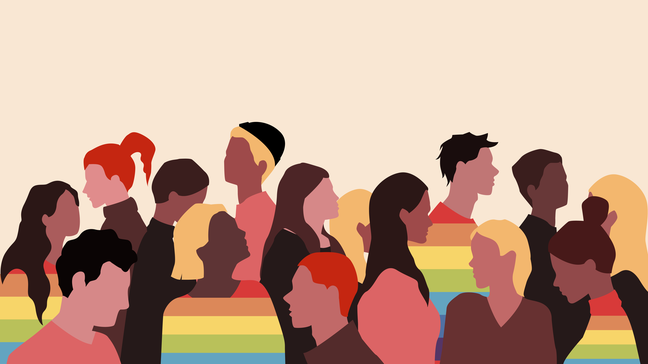
Applying for school is definitely an intimidating time. You’re stuck writing essay after essay, you have to take exams, pay application fees, and the list continues. However for LGBTQ+ students, their email list of new challenges may be longer. Choosing the best college that fits all their academic needs and it is supportive of their identity is, unfortunately, harder of computer ought to be.
To hopefully make the process a little easier for LGBTQ+ students looking to attend college, I’ve laid out several important steps you can take to ensure you’re picking the right school.
Challenges LGBTQ+ university students face
LGBTQ+ students may face numerous challenges within their college careers, including:
- Harassment. Based on GSLEN’s National School Climate Survey, 90% of LGBTQ+ students experience harassment or assault according to personal characteristics, including sexual orientation, gender expression, and gender identity.
- Securing housing. Some LGBTQ+ students face harassment in their housing situations attending college. Transgender students, particularly, can have a difficult time getting assigned housing that matches their gender identity, also it can be uncomfortable to ask the college to alter housing.
- Finding fair athletics. College athletics typically fall under two gendered categories: men and women. This could get messy for trans and non-binary students who often have to fight to become included in sports and extracurricular activities.
- Getting correct financial help. For college students who don’t possess a healthy relationship using their parents, the FAFSA can be difficult, especially if they can’t be eligible for a independent student status. A financial aid office that understands and it is sympathetic to that situation isn’t easy to locate.
Filling out the FAFSA alone
When you’re trying to get college, you’ll have the same fate as everything came before you decide to: You’ll need to fill out the FAFSA. The Free Application for Federal Student Aid may be the number one method of getting government funding for the education. This is actually the first route many students should take before applying for private loans.
For LGBTQ+ students, many of whom don’t have support of loved ones when it comes to signing up to college, filing the FAFSA out could be incredibly complicated, since most from the form involves completing your parents’ or guardians’ financial information. LGBTQ+ students who may have difficulties with their own families won’t have quick access to this information.
One of the only ways round the parental portion of the FAFSA would be to declare yourself an independent student. Emancipated minors, as well as married students and homeless youths can file as independent students. Because this type of filer, you’ll go through the regular FAFSA, but you’ll skip the parental portion.
What basically can’t declare myself a completely independent student?
If you don’t qualify of the independent student — say, you’re not in contact with your folks, but you were never officially declared emancipated — there’s a place you are able to report special circumstances on the FAFSA.
Unfortunately, this won’t guarantee you’ll get the financing you’re expecting, so you’ll need to make certain to contact the financial aid department at the colleges you’ve been accepted to and get the things they can perform, if anything.
Scholarship opportunities for LGBTQ+ students
For students who identify as LGBTQ+, there are numerous scholarships available that can help you pay for your education. Even though many of these scholarships won’t cover your whole tuition, any tiny bit you will get will help.
A few specific scholarships include:
- LEAGUE Foundation scholarships — The League Foundation provides a few different scholarships for LGBTQ+ students which range from $2,500-$4,000. Students have to be graduating high school seniors the year they apply.
- The Out to Innovate™ scholarships — LGBTQ+ undergraduates and graduates who are studying in a STEM field can use to 3 different scholarship options which range from $2,000-$5,000.
- Pride Foundation scholarships — LGBTQ+ students who reside in Alaska, Idaho, Montana, Oregon, or Washington can use for the Pride Foundation scholarships. There are over 60 scholarship options, but you’ll only have to complete one application to try to get them.
- The Aritzia Scholarship — This scholarship, founded by Aritzia, a way retailer, offers LGBTQIA students (four each year) one-time scholarships of $5,000, which is paid straight to the schools.
- Traub-Dicker Rainbow Scholarship — Established by Peggy Traub and Phyllis Dicker, this scholarship supports students who identify as lesbians in their pursuit of a university degree. Several students get one-time scholarships of $4,000. These scholarships are paid directly to the schools.
- Little Bird Scholarship — LGBTQ+ students who are also undocumented immigrants, refugees, and people seeking or granted asylum can use for the Little Bird scholarship. Students could possibly get $18,000 to become dispersed over two years of school.
- Levin-Goffe Scholarship — LGBTQ+ or intersex students who are also undocumented immigrants and studying in Nyc can receive $25,000 for up to 2 yrs of faculty so long as they’re rising sophomores in college.
This is a small sampling of scholarships available. If you’re a high school student, ask your guidance counselor to check out other options and they can compile a listing. An easy Search can lead to state-specific options as well.
Finding a queer-friendly college
When you begin searching for schools, you’re obviously thinking about the training it provides and also the extracurriculars you want to take part in. But because an LGBTQ+ student, you have a number of factors you need to think about. You’ll want to make sure your school(s) of preference are queer-friendly spaces.
A few of the most queer-friendly colleges in the country include:
- Agnes Scott College
- Bard College
- Smith College
- Mount Holyoke College
- Brown University
- College from the Atlantic
- Harvey Mudd College
- Oberlin College
- New York University
You’ll want to consider additional factors besides the college’s rating, though. Look into the discrimination policies at the top choices, and consider the actual location from the university. Is its off-campus someplace you need to be? Is it in an accepting area? You will have to head to town more than you likely think, so make certain you’re living in a community you want.
Understanding your rights being an LGBTQ+ student
Even schools using the best intentions could be within the wrong and commit acts of discrimination against students. You have rights in certain situations, including:
- Freedom of expression — Colleges cannot tell you just how you can’t be out or discuss LGBTQ+ rights on campus. Public colleges have to follow the constitutional right to expression.
- A to privacy — A college cannot out you without expressed permission of your stuff.
- Title IX protections — Title IX protects students who are victims of sexual violence or harassment. LGBTQ+ students will also be covered under this too. Schools possess a responsibility to reply to acts of violence in a timely manner, regardless of the gender from the perpetrator or even the victim. Title IX also protects transgender students’ rights to fair and equal educational opportunities.
Understanding these rights can help ensure that you’re getting equal and just opportunities. If you think the financial aid office or other office at your university has violated any of these rights, you can report this towards the ACLU which will help you start a case.
Resources once you’re a student
Many colleges have begun dedicating resources to the LGBTQ+ community, offering assistance to students who have long faced discrimination in higher education. When looking into colleges, probably the most supportive schools will have the following:
LGBTQ+ resource centers
Many colleges have LGBTQ+ centers that are designed to help LGBTQ+ students exist comfortably on campus. While looking into schools, do a quick search and find out what the school has to say about a resource center like this.
If you have specific questions, you may also email the contact. In my experience, they’re more than pleased to answer questions from curious potential students.
LGBTQ+ clubs
Many colleges have clubs for LGBTQ+ students. These vary from organizations to activism clubs. My college had on the dozen options to select from, which helped me feel much more comfortable being an LGBTQ+ student. It made me feel like my university recognized the significance of having groups like this.
Supportive campus events
College campuses have speakers all kinds of backgrounds to give students an understanding of various communities. You’ll want to make sure your school includes LGBTQ+ individuals within the mix.
LGBTQ+ courses
One from the only core courses required by my college would be a social justice class. There’s great importance in becoming able to understand other people’s perspectives and understanding social justice issues that have to do with different communities. Many schools have gender studies, women’s studies, and queer studies programs. If you’re interested in studying these issues professionally, find out the exact options your schools of preference offer.
Summary
LGBTQ+ students will want to be sure to select a college that not only supports their identity but has got the right resources to help students flourish. Make sure to make use of the many scholarships available to LGBTQ+ students, and understand the rights you've as a student. Plus, make use of the resources your school does offer. They’re exist for!








